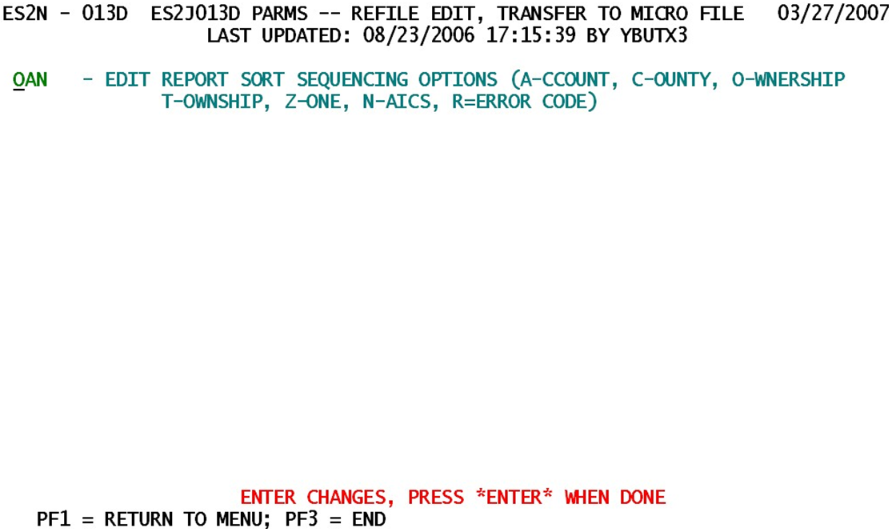14 job 013d transfer refiling file changes micro
Job 013D - Transfer Refiling File Changes to Micro File
Job 013D posts code changes from the Refiling File to the Micro File. It also performs code-change-related micro edits and allows them to be sorted in a wide variety of ways. This processing is also embedded in the 242D (integrated edit) job, since code change information is important during first calendar quarter macro editing. The sorting parameters used in this job are noted below.
1. Edit Report Sort Sequencing Options - Up to five letter codes are used to establish the sort order of an edit report produced during the refiling-to-micro data transfer. If no parameter codes are listed, the job will leave the report in the standard SESA-ID sort order.
- a. ‘A’ (“Account”) - The default value, this parameter will sort the edit report in SESA ID sequence.
- b. ‘C’ (“County”) - This code sorts the edit report data by county FIPS code.
- c. ‘N’ (“NAICS”) - Sorts the report by current-quarter NAICS code.
- d. ‘O’ (“Owner”) - Sorts by the ownership code (high-order digit only).
- e. ‘R’ (“Error”) - Sorts the edit report by the most significant (i.e., the lowest numbered) error code found.
- f. ‘T’ (“Township”) - Sorts the edit report by sub-county New England township codes.
- g. ‘Z’ (“Zone”) - Sorts the report by sub-county zone codes.
The 013D job, though labeled with the “D” on-demand job type code, is essentially an annual-use job. It is also more closely related to the refiling cycle than it is to the quarterly QCEW process. Even though it is not listed as an EARS job, it relies heavily upon refiling data. The job is generally run during the final phase of the refiling cycle, typical between July and August.
Related Links
